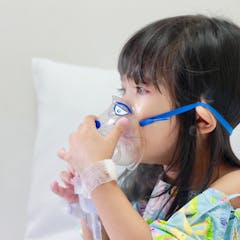
QIMR Berghofer Medical Research Institute

Established in 1945 by the Queensland Government, the QIMR Berghofer Medical Research Institute (formerly the Queensland Institute of Medical Research) is a world leading translational research institute focused on cancer, infectious diseases, mental health and a range of complex diseases. Working in close collaboration with clinicians and other research institutes, our aim is to improve health by developing new diagnostics, better treatments and prevention strategies.
QIMR Berghofer is home to more than 700 scientists, students and support staff in six research departments (in over 50 separate laboratories) and a support division.
Links
Displaying all articles

Excessive exposure causes skin cancer, but sun exposure also has benefits. How do you balance the two?

We’ve had an early start to the bushfire season and there’s more to come. No wonder spring isn’t always a celebration.

In emotional abuse cases, it is the most important adults in a child’s life who send harmful messages. And the hurt occurs when self-worth and identity are developing.

Is ‘climate anxiety’ a reasonable response to impending environmental catastrophe? Or a problem to see a mental health professional about?

Most people with COVID will recover at home without any treatment. But some people who are at risk of severe disease could benefit from new medicines to reduce the chance of the disease progressing.

Many anti-bullying programs used in schools are based on theoretical concepts of what may work. Very few of them have been scientifically evaluated, and some may make things worse for victims.

A study of more than 1.7 million people has revealed 41 distinct genetic regions associated with left-handedness, and another 7 tied to ambidexterity.

The risk of mental health problems associated with this bushfire season extends well beyond those living in directly affected regions.

We asked five experts if social media was damaging to children and teens, and four out of five said yes.

About one in six people who take the most common medication for Parkinson’s disease will develop addictive behaviours. We found whether this happens depends on a person’s unique brain structure.

People with mental illness are at their most vulnerable when they’re discharged from hospital. Without the support of family or friends at this time, they’re less likely to recover.

It is perfectly legal for a doctor working in private practice to charge what they believe is fair and reasonable. But that doesn’t mean it’s OK to charge tens of thousands of dollars for a procedure.

Dans les sociétés occidentales, de plus en plus d’enfants et d’adultes sont asthmatiques. Que savons-nous exactement des causes de cette affection ?

More kids these days have asthma, and more people in the Western world, so do we know what causes it in the first place?

Most Aussies think we have such high rates of skin cancer due to an ‘ozone hole’. But that’s not the case. Here’s why we have nearly a million cases of skin cancer per year.

Australians over the age of 40 can now calculate their risk of developing melanoma with a new online test.

A recent study claims most people with melanoma don’t have many moles or any atypical moles. But exploring the study in depth shows these conclusions don’t have a strong foundation.

This body map brings together evidence on proven cancer causes. Using credible, scientific sources it answers questions about whether alcohol, red meat or sun exposure increase your cancer risk.

The recipients of this year’s Nobel Prize for Chemistry showed that DNA is far from static. Rather, it is bombarded by damaging forces, but our bodies know how to repair these precious strands.

Common over-the-counter painkillers, such as ibuprofen and aspirin, can decrease risk of developing squamous cell carcinoma, according to a study published today in the Journal of Investigative Dermatology…
